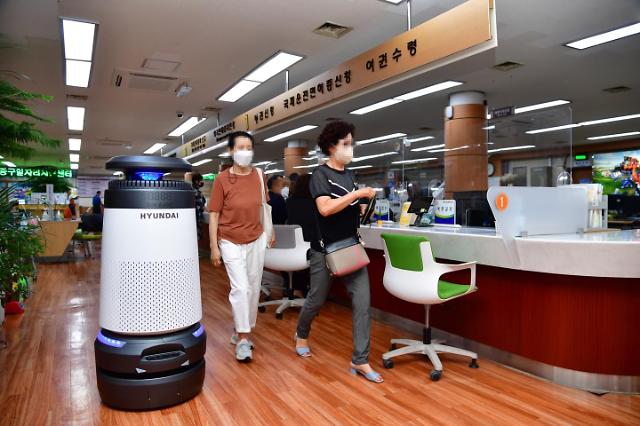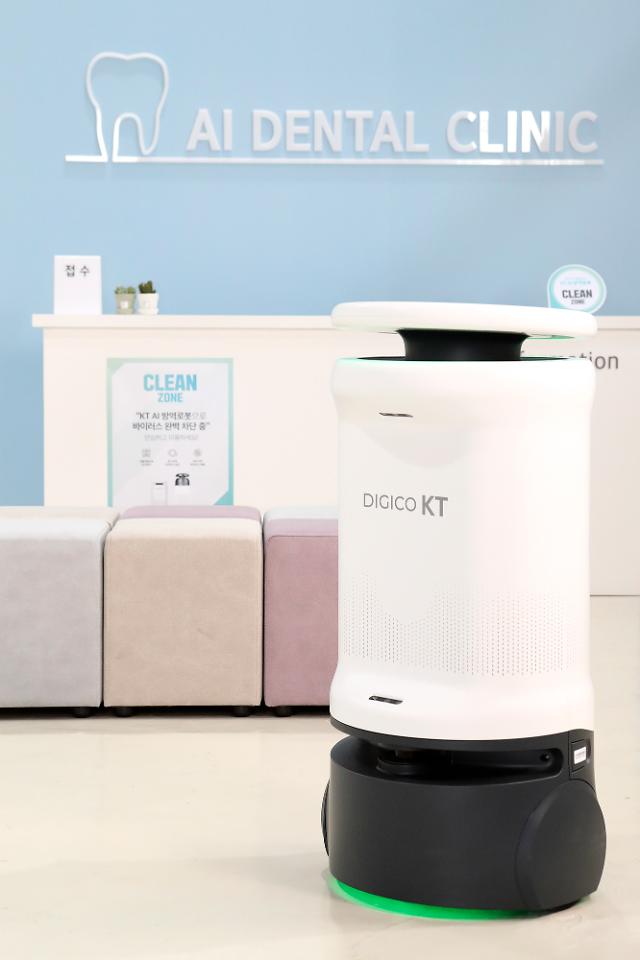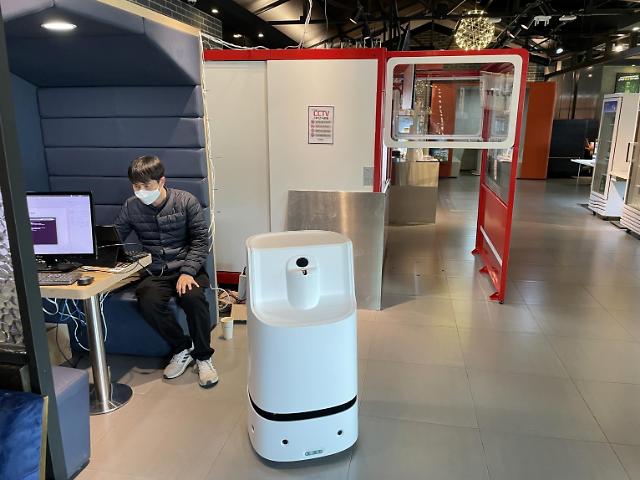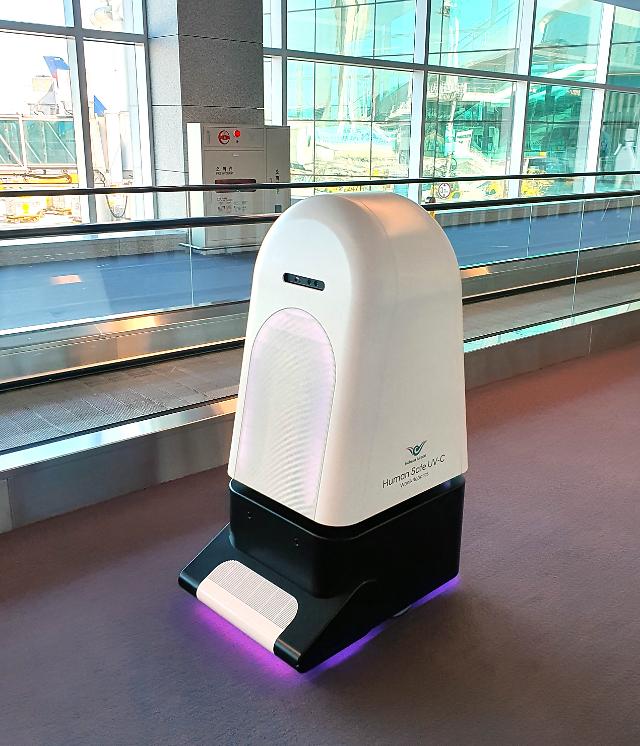
[Courtesy of Hyundai Robotics]
Hyundai Robotics, a robot maker affiliated with South Korea's top shipbuilding group, would release its new quarantine robot on July 1. Plasma sterilization removes various harmful bacteria and discharges purified air. The robot disinfects the floor with ultraviolet-C (UVC) LEDs. UVC, also called Deep UV, emits ultraviolet light with short wavelengths.
Plasma can efficiently inactivate microbial pathogens. It has been used to inactivate pathogens on the surface of medical and dental devices. UV-C radiation is a known disinfectant for air, water and surfaces that can help mitigate the risk of acquiring an infection.
Hyundai Robotics said its quarantine robot is equipped with eight sensors that detect ultrafine dust and organic chemicals in the atmosphere and purify them with three types of filters.
In May 2022, Vodafone, a British telecom company, tied up with Hyundai Robotics to develop service robots targeting European clients. They would test-run quarantine robots at university hospitals in Germany before supplying 5G-based service robots to restaurants, hotels, and nursing facilities.
Based on Vodafone's 5G communication infrastructure, Hyundai Robotics would upgrade its system that simultaneously controls multiple robots and enables real-time data exchange between robots for their efficient team-level cooperation without human intervention.
COVID-19 prompted researchers to quickly develop autonomous robots to sterilize high-risk facilities. Many quarantine robots in operation can only clean vacant spaces or places with a very small moving population because strong light treatment could harm people.
In March 2022, South Korea's largest telecom company KT unveiled quarantine robots to sterilize viruses and purify the air using a plasma method that can safely disinfect hospitals, schools and public facilities at all times even with people staying around.
KT's robot uses UV-C LEDs mounted at the bottom to kill germs and viruses on the floor. Robots can autonomously drive and automatically charge through cameras and light detection and ranging (LiDAR) sensors which measure distance by illuminating the target with laser light.




